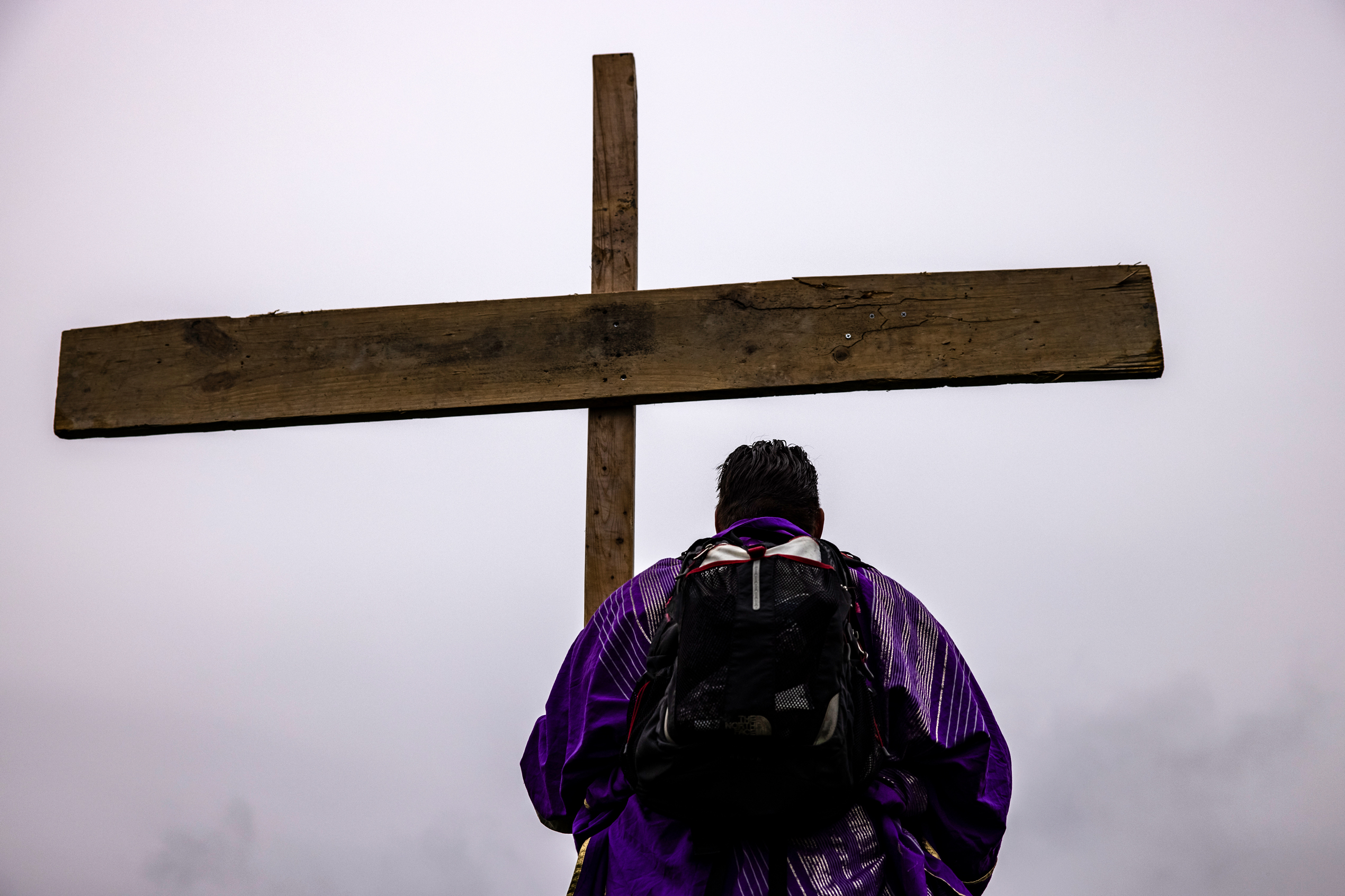Per Axaday:
Catholic teaching is that when Jesus renamed Simon as Peter and said "on this rock I build my church", he was naming Peter as the leader of the church and that all the history of Popes have been a direct continuation and so they are the original Christian Church. Outside of Catholic tradition the first few centuries of that claim have been lost to history. There were always splinter groups and the Eastern Orthodox became a pretty substantial one, but by Martin Luther's time there had mainly just been THE Church in Western Europe for over 1000 years. Catholic did not then mean a certain kind of church. The point Luther endeavored to make was that THE Church had lost its way and needed a course correction. He did not initially intend to create a competing brand.
The Catholic Priest hosting the Bible-in-a-Year podcast I'm listening to made these same great points, so I don't know whether it's okay to just read the Bible and pray on my own, apart from the Catholic Church.
I thought Martin Luther emphasized that Faith in Jesus alone and trusting God is enough.
Listening to this Catholic Bible-in-a-Year podcast, I was surprised how well the Catholics thoroughly study and know the Bible, more so than any of the Protestant denominations I've attended where they only pick out a couple of random verses from the Bible and talk for an hour or hours on it. The Catholics really have a systematic, structured, complete teaching program of the whole Bible. I was quite impressed.
I'm going to break in right here to say that, while the "pull random verses" program may well have sway in many evangelical (not the same as Protestant) circles, the "systematic, structures, complete teaching program of the whole Bible" is by no means exclusive to Catholicism (and depending what circles one runs in, is by no means universal even among Catholics). It's perhaps safest to say that such a program represents an ideal, but several Protestant denominations use similar structures.
I was equally surprised when this Catholic priest podcast host took digs at Martin Luther, like how he threw out the 7 extra books that are in the Catholic Bible because he did not like them.
The history of what Protestants call the Apocrypha (and what Catholics prefer to call the Deuterocanonical books) is complex, and there's definitely more to "what's in and what's out" than merely "not liking" (or otherwise disagreeing with the theology contained in) certain books. I'm being a bit reductionist here, simply for the sake of not boring everyone with an even greater wall of text than what this already is, but one of the core factors is the ability (or perceived ability, to be honest) to tie a book to the Jews of the New Testament period, or in the case of the New Testament Pseudepigrapha (essentially the NT equivalent of the Apocrypha, which typically refers only to OT-era books. There's OT pseudepigrapha, too, but this is getting deep into the weeds) to the followers of Jesus or to Paul (not usually directly in the case of the former, but through a disciple of said followers. Even conservative scholars agree that even the earliest of the NT books was written decades after Jesus's death and resurrection). It should also be noted that, while the finalized version of the canon was prompted by Luther and the Protestant reformation, numerous councils attempted similar projects, often putting the same so-called apocryphal books aside, many times in the centuries before Luther.
(And, yes, there are holes here. Paul quotes one of the books now considered part of the Apocrypha, for example. Also, Luther would have liked to remove a book or two traditionally considered canonical, even by Lutherans. But that's actually a minor quibble in the grand scheme of things.)
The Catholic priest I listen to made an excellent point about the Eucharist, or Communion, citing Jesus' own words saying the breaking of bread and drinking of wine is literally consuming his body and blood. He made the point that this was the belief and practice for hundreds of years. I know that today Protestants interpret the Communion of bread and wine being only symbols of Jesus' body and blood, not literally his body and blood. But it was compelling how Catholics cite Jesus' own words and the hundreds of years of history of how it was passed down from Jesus himself.
Now my thoroughly Protestant side comes out. Yes, the literal belief was maintained for centuries, but eventually people got enough ability to think for themselves to recognize that the elements of Communion look and feel
nothing like human flesh and blood. The Catholic church has explanations for this, but they come off as ridiculous to non-Catholics, and the only real justification for it is if one insists on taking Jesus's words literally (and, of course, many do) rather than figuratively. People don't have any trouble understanding Jesus to have spoken figuratively in other instances (the parables, for example), but it's apparently a major problem for some here. Ultimately, one just has to agree to disagree.


